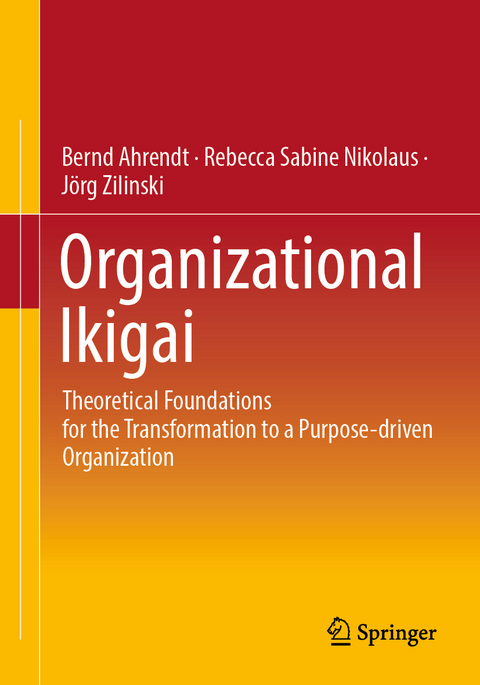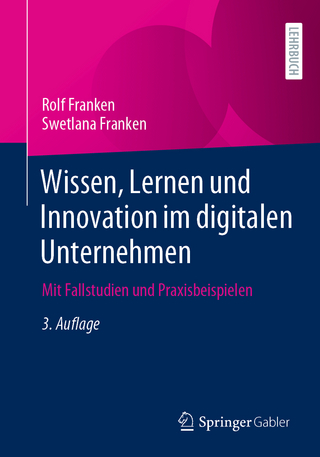
Organizational Ikigai
Springer Berlin (Verlag)
978-3-662-69066-6 (ISBN)
Organizations are increasingly faced with the challenge of recruiting and retaining suitable personnel. It is crucial to have employees who are committed to their organization and actively support change. Such commitment is primarily present when employees find suitable framework conditions for themselves that result from the lived values that are anchored in the organizational culture. Accordingly, a culture must be based on an image of human man that is worthy of man.
An image of man worthy of man is reflected in Ikigai. Ikigai pursues a meaning-centered approach (purpose-driven) and - based on the original logotherapy of Viktor E. Frankl - assumes that the core motivation of human beings is the search for meaning.
The book lays the theoretical foundation for a comprehensive individual and organizational consideration of Ikigai by describing Ikigai as a Japanese philosophy of life and, on the basis of original logotherapy, opening up Ikigai for the non-Japanese cultural area. The necessity of a purpose driven view is explained and individual Ikigai is transferred to the organizational context as a blueprint. The four central levers of organizational Ikigai are described and the theoretical foundations for a transformation to a purpose-driven organization are presented.
Dr. Bernd Ahrendt is Professor of General Business Administration, in particular Human Resources Management, at the FOM University of Applied Sciences and Arts for Economics and Management in Hanover.
Dr. Rebecca Sabine Nikolaus holds a doctorate in Japanese Studies and is an HR developer, coach and lecturer. She focuses on strategy and HR management in the context of digital globalization.
Jörg Zilinski holds a degree in business administration and is an HR manager, consultant and lecturer. His focus is on organizational development and people management in the context of digital transformation.
Part I: Theoretical basis: Individual and organizational Ikigai.- 1 The development towards the information age.- a. Re-organization of the world: digital globalization - transition to the industrial age - individualization - demographic change.- b. Re-organization of companies and employment relationships: New Work / Agility / Holacracy / Digital Business Models.- 2. Ikigai.- a. Individual Ikigai - Purpose-driven - Frankl's logotherapy as an explanatory approach to Ikigai - Purpose-centred mindset - Freedom and responsibility.- b. Organizational Ikigai - Transfer of the Ikigai idea to the organization, in particular mission/vision; understanding of leadership; competence management - employee-centric approach - cultural fit - organizational fit.- c. The tree of organizational culture as a metaphor of Ikigai - The roots (value orientation) - The trunk (the mindset) - Supporting branches and ramifications (cultural areas) - Branches and leaves (communication).- Part II: The toolbox - Practical implementation through adequate instruments.- 1. toolbox "The root".- 2. toolbox "The trunk".- 3. toolbox "Supporting branches and ramifications".- 4. toolbox "Branches and leaves".
| Erscheinungsdatum | 01.08.2024 |
|---|---|
| Zusatzinfo | XVII, 222 p. 55 illus. |
| Verlagsort | Berlin |
| Sprache | englisch |
| Maße | 168 x 240 mm |
| Themenwelt | Wirtschaft ► Betriebswirtschaft / Management ► Unternehmensführung / Management |
| Schlagworte | agile cultural management • Cultural Change • customer-centric-approach • Digital transformation • employee-centric-approach • ikigai • Organizational Culture • purpose-driven organization • Viktor E. Frankl |
| ISBN-10 | 3-662-69066-7 / 3662690667 |
| ISBN-13 | 978-3-662-69066-6 / 9783662690666 |
| Zustand | Neuware |
| Haben Sie eine Frage zum Produkt? |
aus dem Bereich


